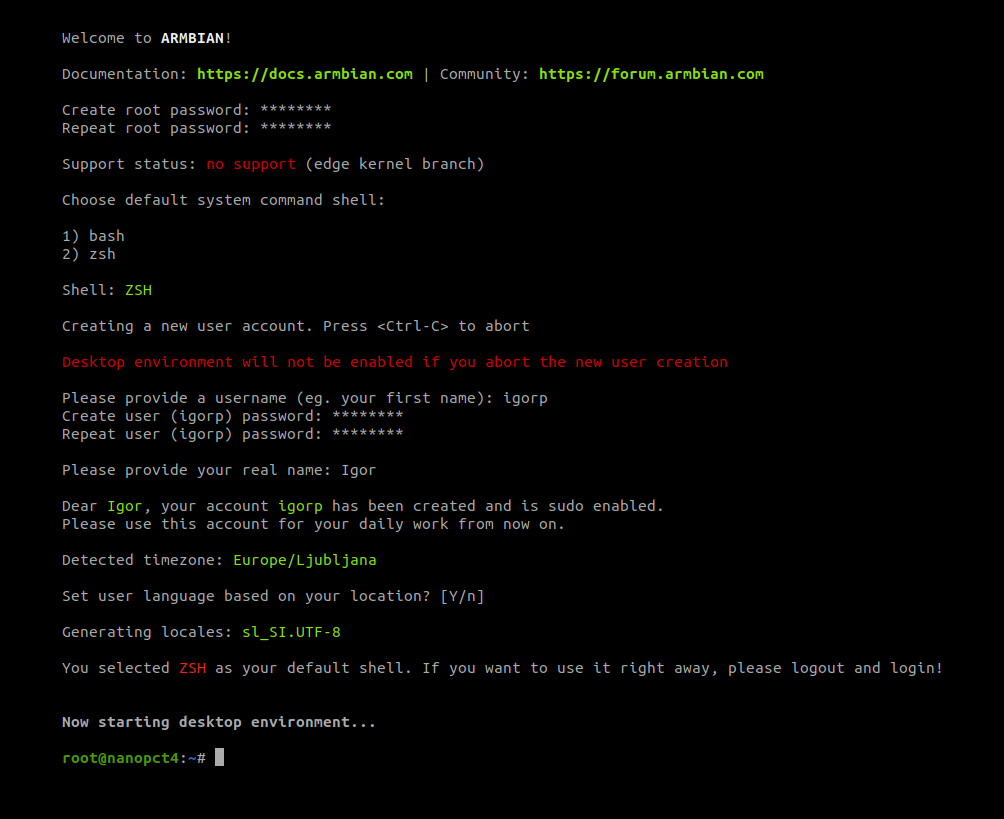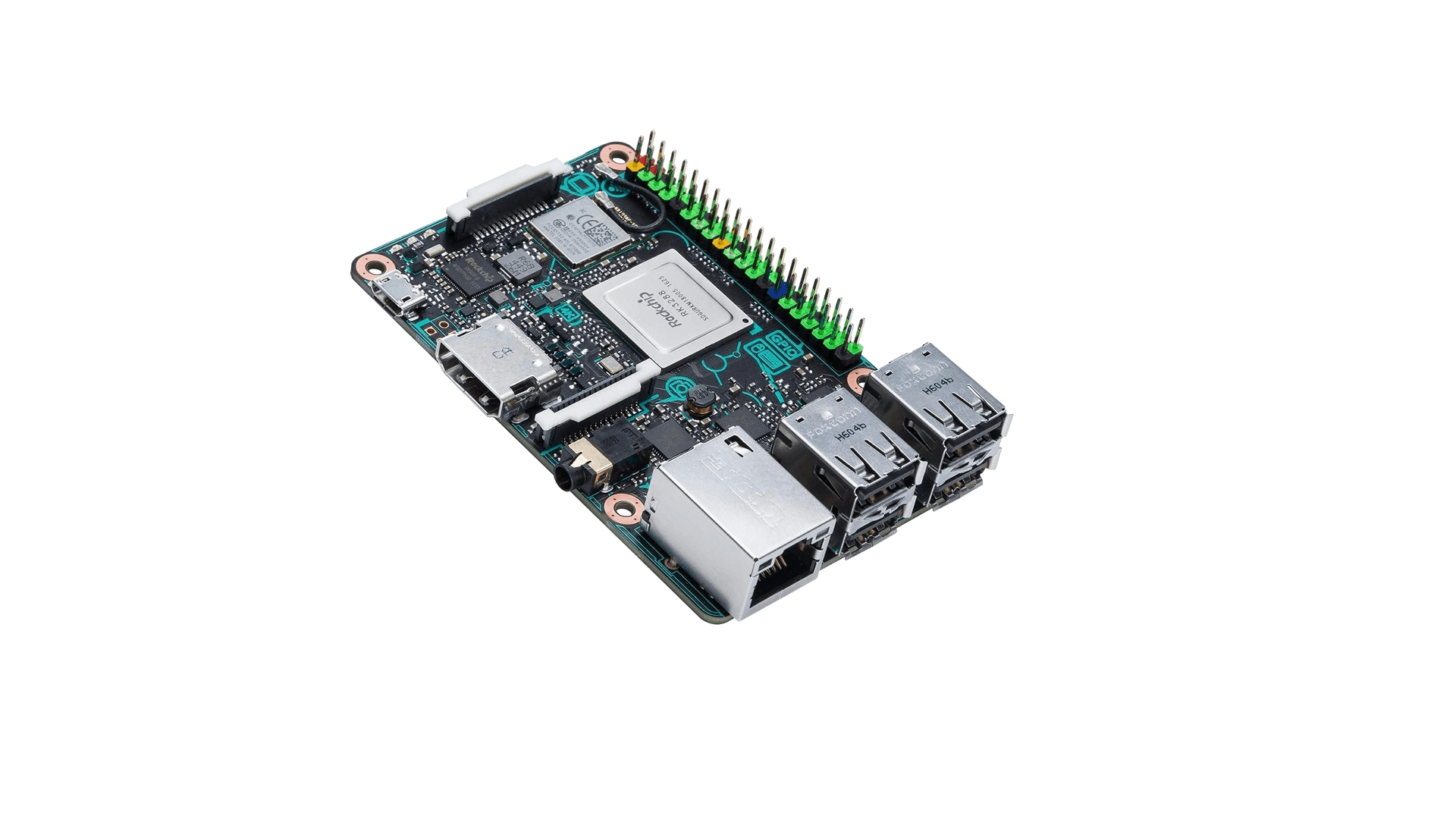* More about support definitions, criteria and relationships
Armbian 24.2.5 Bookworm CLI
Kernel: 6.6.22, Size: 408.1MB, Release date:
Mar 25, 2024
SHA hash | PGP
signature
Armbian 24.2.5 Jammy XFCE
Kernel: 6.6.22, Size: 1.2GB, Release date:
Mar 25, 2024
SHA hash | PGP
signature
Different images? Missing features? -> Download SDK Looking for compatible accessories? Want to participate in development?
Stable releases
| User space | Interface | URL | Torrent | Kernel | Integrity | Size | Release date | |||
| Armbian Bookworm | Minimal | 6.6.22 | SHA | ASC | 277.5MB | Mar 25, 2024 | ||||
| Armbian Bookworm | XFCE | 6.6.22 | SHA | ASC | 1.3GB | Mar 25, 2024 | ||||
| Armbian Jammy | CLI | 6.6.22 | SHA | ASC | 412.3MB | Mar 25, 2024 | ||||
| Armbian Jammy | I3-wm | 6.6.22 | SHA | ASC | 1.2GB | Mar 25, 2024 | ||||
| Armbian Jammy | Minimal | 6.6.22 | SHA | ASC | 218.5MB | Mar 25, 2024 | ||||
| * Looking for different or custom variant? Use Armbian build framework! | * Most of images are tested with test automation or by Armbian community or official maintainers. | |||||||||
Dedicated applications
| Application | URL | Torrent | Kernel | Integrity | Size | Release date | ||||
| Armbian Home Assistant Supervised | 6.6 | SHA | ASC | 331.6MB | Apr 4, 2024 | |||||
| * 3rd party unofficial applications deployment made with official Armbian build framework. Application support is not provided by Armbian team, but you are welcome to use our community forums for support. | ||||||||||
Specifications
1000tx 2GB 32bit 4 core UASP bluetooth docker eMMC i2c spi wifi Rockchip RK3288
* Specifications differ from hardware revision, model and software support level
FAQs
- check previous images from archive
- join community forums
Simple
BASH or ZSH shell, standard Debian/Ubuntu utilities. Features can be adjusted with menu-driven utility. Login is possible via serial, HDMI or SSH.
Universal
Minimal, server or Desktop. We work with XFCE, Gnome and Cinnamon but more is possible to build: Mate, KDE, Budgie, Deepin, i3, …
Light
No bloatware or spyware. Special utilities are completely optional. Suitable for newcomers and professionals.
Optimized
Distributed images are optimized for flash media (SD/eMMC/SSD) and compacted to real data size.
Fast
Armbian is optimized on kernel and userspace level. ZRAM & ZSWAP support, browser profile memory caching, garbage commit delay.
Secure
Security level can be adjusted with the armbian-config. OS is reviewed by professionals within the community.
Supported
Maintainers and community have deep understanding how HW work. We are seniors with 30+ years of experience in Linux + embedded Linux.
Open
Armbian provides open source build framework to build a distribution of optimised Linux hardware interface for armhf, aarch64 and x86.
We provide a selection of images that fits hardware best. If you need different image – use build framework and make whatever you need. Build framework relies on Debian and Ubuntu packages – you can build any combination – stable, old stable or rolling release.
Minimal images comes only with essentials and without armbian-config, armbian-zsh, build-essentials, Python, DKMS, …
Make sure you have a good & reliable boot media (SD card / USB key) and a proper power supply. Archives can be flashed with Etcher (all OS) directly.
Insert the SD card into the slot, connect a cable to your network if possible or a display and power your board. (First) boot (with DHCP) takes a bit longer.

Support is provided in one of two ways:
- Free support is provided via general project search engine, documentation, community forums or IRC/Discord. Keep in mind this is mostly provided by our awesome community members in a best effort manner and therefore there are no guaranteed solutions.
- For commercial or prioritised assistance:
- book a an hour of professional consultation,
- consider becoming a project partner.
- Reach us out at https://armbian.com/contact,
Daily / Rolling releases from CI pipeline
| User space | Kernel | URL | Torrent | Integrity | Size | Release date | ||
| Armbian Trixie Minimal | rolling | 6.8.7 | SHA | ASC | 271.8MB | Apr 24, 2024 | ||
| Armbian Trixie Minimal | rolling | 6.6.28 | SHA | ASC | 272.1MB | Apr 24, 2024 | ||
| Armbian Noble XFCE | rolling | 6.6.28 | SHA | ASC | 788.4MB | Apr 24, 2024 | ||
| Armbian Noble XFCE | rolling | 6.8.7 | SHA | ASC | 789.6MB | Apr 24, 2024 | ||
Rolling releases are suitable for Linux enthusiasts who want cutting edge packages and have the skills to fix damage that a bad update might cause. If you want stability in a production environment or low headaches as a novice user, skip rolling releases.
They are only at, build and ship, Debian testing / Arch / Manjaro / Suse Tumbleweed / Kali / Gentoo support quality level!


